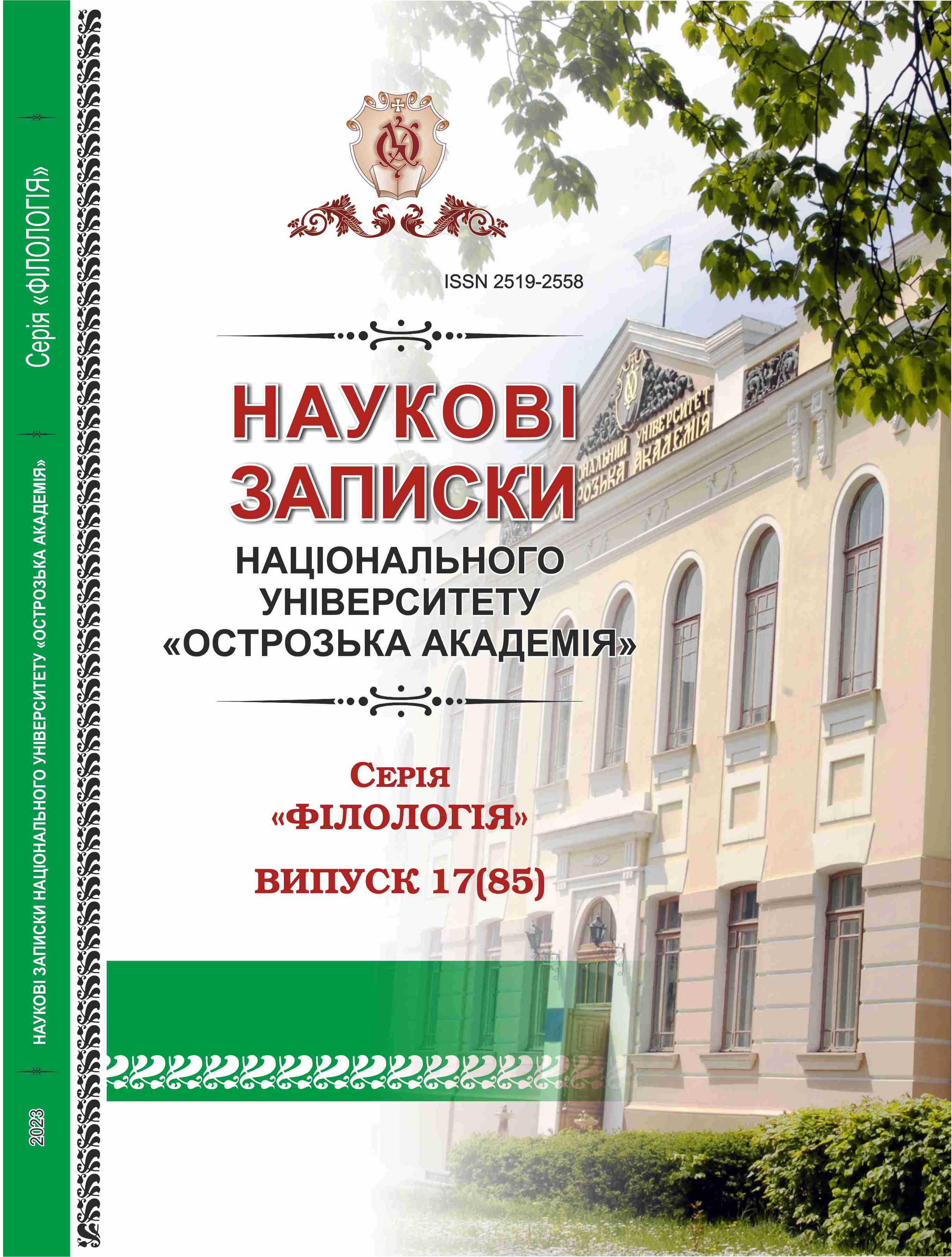TRANSLATING PRONOUNS AS MARKERS OF INDEFINITENESS IN THE BILINGUAL PARALLEL CORPUS : A CONTRASTIVE ASPECT
Keywords:
category of indefiniteness, indefinite pronoun, interlingual transformation, translation transformation, translation equivalent, corpus-based approach, parallel textAbstract
The article continues a series of publications devoted to the application of a corpus method to the study of translation transformations from the contrastive perspective. The author analyzes indefinite pronouns in the parallel corpus of texts (English-Ukrainian language pair), and finds out the specifics of strategies for their reproduction in Ukrainian. The parallel corpora contain a palette of strategies used by translators, as well as repertoires of translation equivalents with examples of their contextual use, thus providing a valuable resource for contrastive cross-linguistic studies. Pronouns are classified according to a systemic structural grammatical features, corresponding morphological and functional, specified person, object, feature, or their absence. The study proved that the variability of translation of the linguistic units under analysis is usually determined by the taxonomy of indefinite pronouns (semantic and structural aspects), as well as their functionality traits within a particular text fragment and context in general. Among a scope of interlingual transformations in the parallel corpus, the study revealed that two translation transformations prevailed: logical/semantic development and differentiation of meaning. Interstingly, the compensation of losses method was not used at all, which can be explained by indefinite pronouns’ isomorphic features – presence of similar equivalents in the Ukrainian language to express the category of uncertainty. Motivated exclusively by linguistic factors, indefinite pronouns demonstrate a high level of intertranslatability, do not require additional contextual clarification and can be compensated by other translation transformations.

